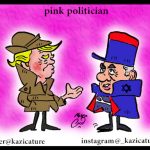Date of Birth: c. 518 BCE
Zodiac Sign: Unknown
Date of Death: c. 438 BCE
Biography
Pindar, often recognized as one of the greatest ancient Greek lyric poets, was born in Cynoscephalae, near Thebes, in Boeotia. His poetic works, primarily the Epinician odes, celebrate victories in the ancient Greek Games and are esteemed for their complex metrical patterns and rich mythological allusions. Pindar’s poetry has been praised for its ability to capture the grandeur and ephemeral nature of human achievements through the lens of divine favor and moral virtue. Pindar was believed to have been educated in Athens, where he was influenced by the musical traditions and poetic forms of the time. Despite his Boeotian origins, he gained widespread acclaim across the Greek world, writing commissioned odes for victors in the Panhellenic Games, including the Olympian, Pythian, Nemean, and Isthmian games. His patrons included some of the most prominent figures of the era, such as Hieron of Syracuse and Theron of Acragas. Pindar’s legacy endured through the centuries, influencing later poets and writers. His works were studied and revered in antiquity, and they continue to be an essential part of classical studies today.
5 Interesting Facts about Pindar
1. Pindar’s house in Thebes was reportedly spared by Alexander the Great during his destruction of the city, owing to the poet’s enduring fame.
2. Pindar’s poetry was celebrated for its use of mythological references to draw moral lessons and elevate the achievements of his subjects.
3. Only a fraction of Pindar’s work survives today, with the Epinician odes being the most well-preserved.
4. Pindar’s style is known for its complexity, often characterized by abrupt transitions and dense imagery.
5. The poet often emphasized the transient nature of human glory and the importance of piety and virtue.
5 Most Interesting Quotes from Pindar
1. “Become such as you are, having learned what that is.”
2. “Creatures of a day! What is anyone? What is he not? A dream of a shadow is our mortal being.”
3. “Words have a longer life than deeds.”
4. “Even wisdom has to yield to self-interest.”
5. “The best of healers is good cheer.”
Highest Net Worth Achieved
Pindar’s highest net worth is not documented in modern financial terms, but he was considered wealthy and highly esteemed in his time, receiving generous patronage from various rulers and victors in athletic competitions.
Children
There is little historical information about Pindar’s personal life, including any children he may have had. Ancient sources primarily focus on his work and its impact.
Relevant Links
1. [Pindar – Wikipedia](https://en.wikipedia.org/wiki/Pindar
3. [The Poetry Foundation – Pindar](https://www.poetryfoundation.org/poets/pindar
4. [Ancient History Encyclopedia – Pindar](https://www.ancient.eu/Pindar/
5. [Theoi Greek Mythology – Pindar](https://www.theoi.com/Text/PindarOdes1.html


